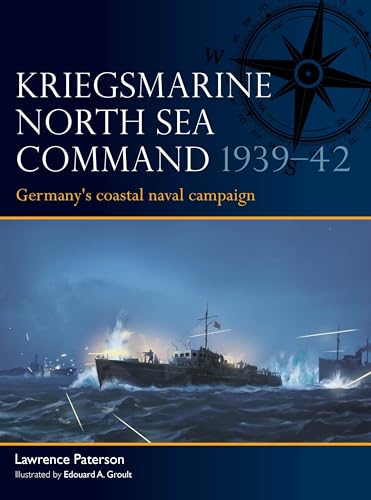
German Naval Camouflage
by Eric Leon
Popularity
4.33 / 5
* A book's popularity is determined by how it compares to all other books on this website.
Where to buy?
Buy from Amazon* If you buy this book through the link above, we may receive a small commission at no extra cost to you.
German Naval Camouflage by Eric Leon
Details
Military Unit:
Kriegsmarine
True Story:
Yes
Biography:
No
Region:
Europe
Page Count:
192
Published Date:
2014
ISBN13:
9781848322233
Description
Main Themes and Topics
"German Naval Camouflage" by Eric Leon is a comprehensive examination of the camouflage and markings used by the German navy during the Nazi era, specifically from 1942 to the end of World War II. This book, part of a two-volume exploration, delves into the complex and intricate patterns of naval camouflage, expanding understanding among warship enthusiasts and model makers. The focus is on providing a detailed and well-illustrated account of various schemes and variations, reflecting years of expert study and analysis. Through numerous photographs and first-hand testimonies from Kriegsmarine survivors, the book challenges previously accepted views and provides a rich resource for better comprehending this intriguing subject.
Writing Style and Tone
Eric Leon's writing in "German Naval Camouflage" is authoritative, reflecting his extensive expertise and meticulous research. The tone is academic yet accessible, making the book suitable for both specialists in the field and enthusiasts with a keen interest in naval history. The narrative is structured logically and complemented by splendid color illustrations, ensuring that complex information is both engaging and understandable. The precision of detail underscores Leon's dedication to factual accuracy and nuanced analysis.
Brief Summary
This volume of "German Naval Camouflage" tackles the intricacies of camouflage patterns used by major surviving German ships, down to destroyers and including torpedo boats, from 1942 until the end of World War II. Building upon the foundation laid by the preceding volume covering 1939-1941, this book integrates newly discovered photographs and documents to create an enriched and elaborate depiction of naval camouflage efforts. The inclusion of first-hand survivor accounts adds depth to the visual and textual analysis, providing a broader appreciation of the tactics and aesthetics employed by the German navy during this turbulent period.









